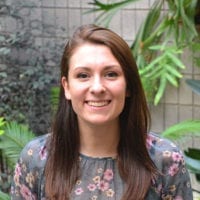
“Bacterial Communities in the Hyphosphere of Arbuscular Mycorrhizal Fungi”
Project Summary:
Arbuscular mycorrhizal fungi (AMF) form a symbiotic relationship with plants, providing nutrients from soil, such as phosphorus, while receiving carbon in return. Bacterial communities that associate with AMF hyphae are theorized to solubilize nutrients or directly facilitate or inhibit hyphal growth and exploration of soil. To explore the composition and function of bacterial communities associated with AMF hyphae, an experiment was undertaken to generate a culture library of AMF associated bacterial isolates. Brachypodium distachyon colonized by Glomus versiforme were grown in two compartment microcosms that included a plant compartment in a washed and autoclaved sand/gravel media and a hyphal ingrowth core with a sand/soil (3:1 w/w) matrix. Hyphae were collected from both compartments over four harvests between 14 and 44 days from colonization to 1) retrieve clean hyphae and hyphae directly in contact with the soil matrix and 2) determine if the hyphal communities change over time. Serial dilutions were prepared from harvested hyphae and were streaked on non-selective 10% tryptic soy agar and R2A media. Colonies were purified, the 16S rRNA gene amplified and sequenced to determine taxonomic identity. Overall, 210 bacterial isolates were collected that can be used for future research into their ecology and interaction with AMF. This resource can allow for better understanding of AMF interaction with soil bacteria and eventually lead to possible agricultural applications to improve nutrient management of soils.
My Experience:
As a PGRP intern at BTI, I have gained a confidence in laboratory settings and feel prepared to conquer future research within graduate school. I’ve become very proficient in PCR, gel electrophoresis, and 16S rRNA gene sequencing techniques. Maria’s laboratory was very welcoming, and I learned something new from each and every one. Being on Cornell’s campus has given me the opportunity to meet professors within the plant science department, along with the natural resources department, and has allowed me to obtain an in-depth look at their graduate school programs. Off campus, Ithaca is a beautiful place to live for summer, and I have gained a great appreciation for the area.
